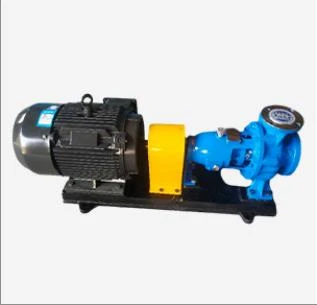TEL:
+86 13120555503
Catalan
- Afrikaans
- Albanian
- Amharic
- Arabic
- Armenian
- Azerbaijani
- Basque
- Belarusian
- Bengali
- Bosnian
- Bulgarian
- Catalan
- Cebuano
- Corsican
- Croatian
- Czech
- Danish
- Dutch
- English
- Esperanto
- Estonian
- Finnish
- French
- Frisian
- Galician
- Georgian
- German
- Greek
- Gujarati
- Haitian Creole
- hausa
- hawaiian
- Hebrew
- Hindi
- Miao
- Hungarian
- Icelandic
- igbo
- Indonesian
- irish
- Italian
- Japanese
- Javanese
- Kannada
- kazakh
- Khmer
- Rwandese
- Korean
- Kurdish
- Kyrgyz
- Lao
- Latin
- Latvian
- Lithuanian
- Luxembourgish
- Macedonian
- Malgashi
- Malay
- Malayalam
- Maltese
- Maori
- Marathi
- Mongolian
- Myanmar
- Nepali
- Norwegian
- Norwegian
- Occitan
- Pashto
- Persian
- Polish
- Portuguese
- Punjabi
- Romanian
- Russian
- Samoan
- Scottish Gaelic
- Serbian
- Sesotho
- Shona
- Sindhi
- Sinhala
- Slovak
- Slovenian
- Somali
- Spanish
- Sundanese
- Swahili
- Swedish
- Tagalog
- Tajik
- Tamil
- Tatar
- Telugu
- Thai
- Turkish
- Turkmen
- Ukrainian
- Urdu
- Uighur
- Uzbek
- Vietnamese
- Welsh
- Bantu
- Yiddish
- Yoruba
- Zulu
Telephone: +86 13120555503
Email: frank@cypump.com
febr. . 14, 2025 01:00 Back to list
pipeline pumps
Pipeline pumps are crucial components in numerous industries, known for their reliability and efficiency in transporting fluids. From oil refineries to chemical manufacturing, these pumps enhance operational effectiveness by ensuring steady fluid flow.
To achieve a competitive edge, companies often collaborate with engineers and technical experts to customize pipeline pumps that meet specific operational demands. This collaboration is a testament to the pumps' adaptability, as bespoke solutions can drastically improve energy efficiency and performance metrics. Implementing variable frequency drives (VFDs), for example, allows operators to modulate pump speed according to real-time needs, reducing energy consumption and wear on mechanical components. In terms of innovative trends, the integration of digital technology in pipeline pump systems cannot be overlooked. Smart pumps equipped with IoT capabilities offer predictive maintenance features and real-time monitoring of flow rates, pressure levels, and mechanical status. This digital transformation is critical for addressing the increasing demand for efficiency and sustainability across industries. Environmental considerations also play a pivotal role in the evolution of pipeline pumps. Companies are investing in eco-friendly technologies to minimize the carbon footprint of their operations. Energy-efficient motors, recyclable materials, and sustainable manufacturing processes are now integral to pump design strategies, aligning industrial goals with global environmental standards. In conclusion, pipeline pumps exemplify engineering excellence and are indispensable in the seamless transport of fluids across various sectors. Understanding their operation, investing in high-quality materials, and embracing technological advancements such as smart diagnostics are crucial for maintaining their reliable performance. By focusing on expertise, authority, trust, and experience, businesses can ensure that their pipeline pump systems not only meet but exceed industry expectations, leading to sustained success in a competitive marketplace.


To achieve a competitive edge, companies often collaborate with engineers and technical experts to customize pipeline pumps that meet specific operational demands. This collaboration is a testament to the pumps' adaptability, as bespoke solutions can drastically improve energy efficiency and performance metrics. Implementing variable frequency drives (VFDs), for example, allows operators to modulate pump speed according to real-time needs, reducing energy consumption and wear on mechanical components. In terms of innovative trends, the integration of digital technology in pipeline pump systems cannot be overlooked. Smart pumps equipped with IoT capabilities offer predictive maintenance features and real-time monitoring of flow rates, pressure levels, and mechanical status. This digital transformation is critical for addressing the increasing demand for efficiency and sustainability across industries. Environmental considerations also play a pivotal role in the evolution of pipeline pumps. Companies are investing in eco-friendly technologies to minimize the carbon footprint of their operations. Energy-efficient motors, recyclable materials, and sustainable manufacturing processes are now integral to pump design strategies, aligning industrial goals with global environmental standards. In conclusion, pipeline pumps exemplify engineering excellence and are indispensable in the seamless transport of fluids across various sectors. Understanding their operation, investing in high-quality materials, and embracing technological advancements such as smart diagnostics are crucial for maintaining their reliable performance. By focusing on expertise, authority, trust, and experience, businesses can ensure that their pipeline pump systems not only meet but exceed industry expectations, leading to sustained success in a competitive marketplace.
Share
Next:
Latest news
-
ISG Series Vertical Pipeline Pump - Chi Yuan Pumps | High Efficiency & Energy Conservation
NewsAug.08,2025
-
ISG Series Vertical Pipeline Pump|Energy Efficiency&Durability
NewsAug.08,2025
-
Heavy-Duty Submersible Sludge Pump | High Performance Solutions
NewsAug.08,2025
-
ISG Series Vertical Pipeline Pump - Chi Yuan Pumps | Energy Efficiency & Low Noise
NewsAug.08,2025
-
ISG Series Vertical Pipeline Pump - Chi Yuan Pumps | High Efficiency, Low Noise
NewsAug.07,2025
-
ISG Series Pipeline Pump-Chi Yuan Pumps|High Efficiency, Low Noise
NewsAug.07,2025










